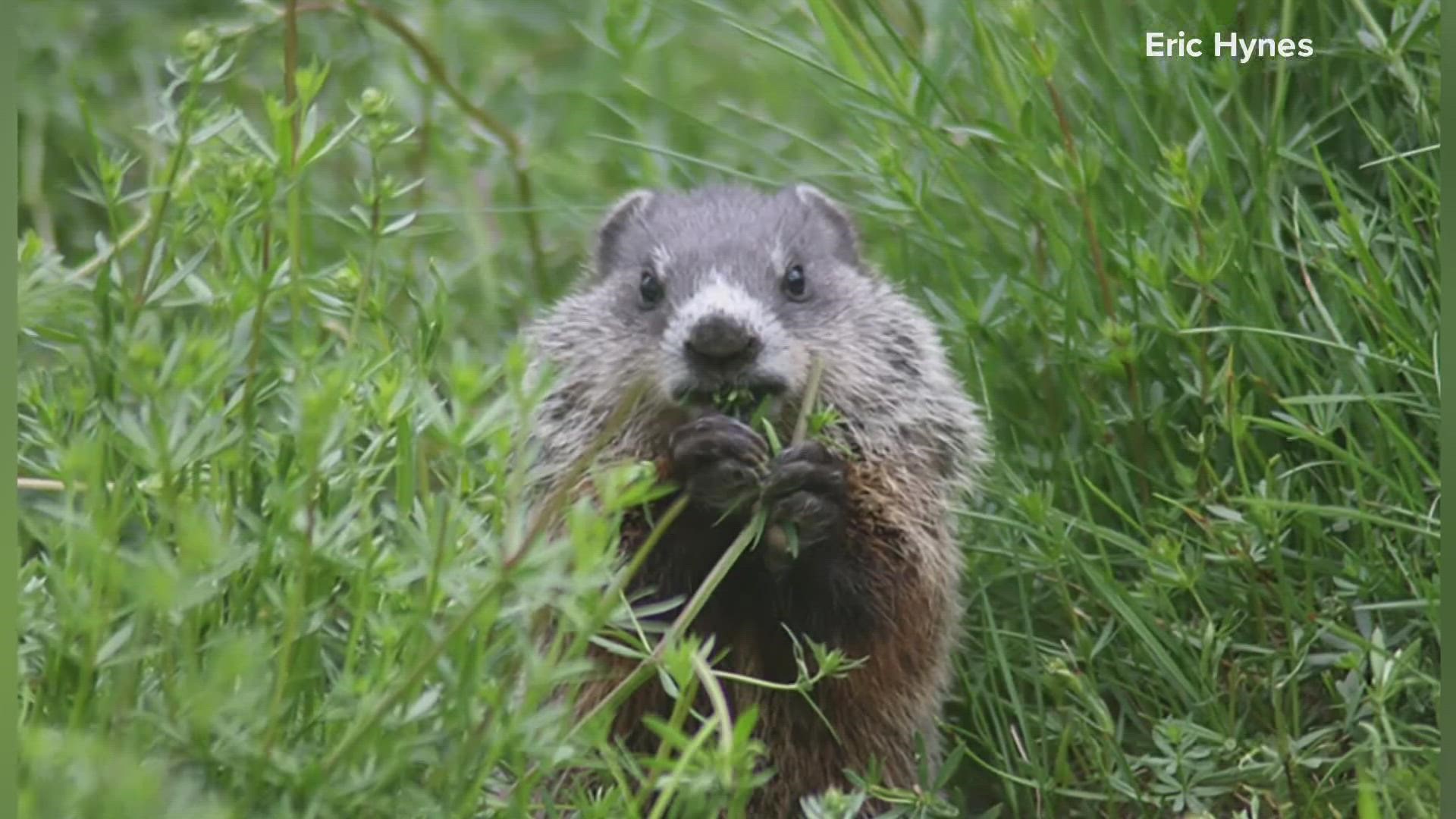FALMOUTH, Maine — Six more weeks of winter ... that's according to Punxsutawney Phil, the groundhog that saw his shadow Wednesday morning.
When they're not predicting six more weeks of winter or early spring, are woodchucks really chucking wood? Doug Hitchcox, staff naturalist at Maine Audubon, said he's never seen it himself.
Hitchcox spends some of his time working at Falmouth's Gilsland Farm Audubon Center.
"It's 65 acres of this wildlife sanctuary that is essentially one exit outside of Portland," Hitchcox said.
At that sanctuary, Christine Maher, professor of biology at the University of Southern Maine, has been studying groundhogs since she first moved to Maine in 1998.
Maher said groundhogs, also known as woodchucks, hibernate throughout the winter months. She said they usually start to emerge around late February and early March. Shortly after, it's breeding season, and pups are born about 30 days later.
"A lot of people would say they all disperse in their first year, that first summer after they're born they all leave home, but about half of the woodchucks don't," Maher said.
Maher said some groundhogs never leave home. So, why do they tend to stay?
"... because Gilsland farm is a really nice place to live. That's why they stay home," Maher said.
From March through September, groundhogs spend their time bulking up for their next hibernation. Maher said some of them can double their weight in that time frame.
If folks like groundhogs, just not when they've invaded the backyard, some things can be done.
Among them, "fencing off the garden so they can't get at it easily, or just harassing them, chasing them away when you see them out there," Maher said.
Maher said folks could also purchase coyote urine at a farm supply store to try to ward off the groundhogs from their backyard.
But there's one thing both Maher and Hitchcox said people shouldn't do: don't trap them in the backyard to move them to a different location, not even to a sanctuary like Gilsland Farm.
"Unfortunately, they have a very low survival rate after translocation," Hitchcox said.
Another solution to these garden pests? Find a way to coexist with them.
"The more time you spend watching them, the more you can appreciate them," Maher said.
So if you spent any time Wednesday feeling mad at a groundhog by the name of Phil, here's a quick reality check:
"It's Maine. We're going to have way more than six more weeks of winter," Maher said.
Maher said people should start seeing groundhogs pop up in Maine in about three weeks, which is always a sure sign that spring is on the way.

